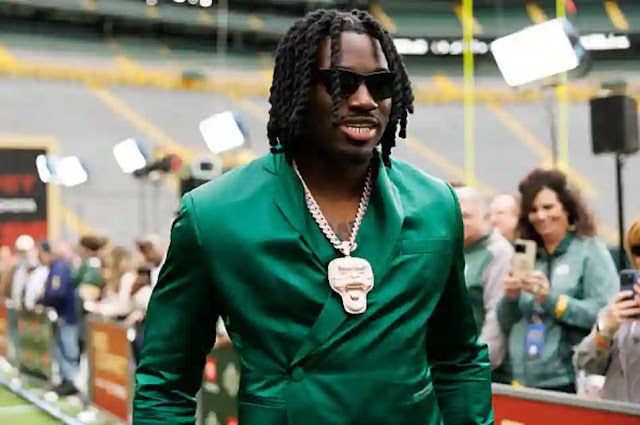Christian Horner, Team Principal of Red Bull Racing for two whole decades, is out. Fans first caught wind of it on July 9, 2025, when news hit that Horner had been dismissed by Red Bull.
It wasn't just rumours—this was real. One of the longest‑serving and most successful figures in modern Formula 1 history was suddenly axed.
Imagine being named the boss at 31 and steering a team to eight drivers’ titles and six constructors’ crowns. It’s both legendary and mind‑blowing.
Why Did Christian Horner Get Fired?
There’s more to this story than meets the eye. Ever since the workplace allegations in February 2024—though officially dismissed—there were whispers of internal strife and a power struggle behind the scenes.
Reports talked about tensions with senior figures, including Helmut Marko and even close colleagues leaving or being shifted around.
Throw in a couple of recent off‑track scandals, and the board must have decided enough was enough.
Red Bull’s statement was kind and gracious, praising Horner's brilliant leadership. But the lack of an official reason—coupled with that dramatic exit speech in Milton Keynes—suggests things inside the team had gone south.
As one insider mentioned, it was “the ultimate end of the power struggle” that Horner lost… and Red Bull took a gamble on a fresh start.
The Impact on Red Bull and the Grid
Red Bull’s new leadership team won’t be messing around. Laurent Mekies, previously in charge of Racing Bulls, is stepping up, with Alan Permane shifting roles too.
It’s a real shake‑up. Some worry that this leadership switch mid‑season could disrupt a team still fighting on all fronts.
But hey, if there’s one constant in F1, it’s that change happens fast—and off‑season shuffles are often part of staying sharp.
Max Verstappen and co. will need to adjust, pronto. Contracts, morale, atmosphere—all these elements ride with the boss.
And questions are already flying around about whether this shift could hamper their APAC push, or even trigger exit clauses in drivers’ deals. One thing’s for sure: this is a big turn for the sport.
From Rising Star to F1 Dynasty: Horner’s Journey
Flashback: 2005, Red Bull buys Jaguar Racing. They hire 31‑year‑old Horner—nuts, right? But he wasn’t green. He’d built a winning F3000 team (Arden) and had a clear vision.
Under his guidance came Sebastian Vettel’s four titles (2010–13), then Max Verstappen’s powerful run (2021–24).
That’s eight world titles and over 120 wins, plus more than a quarter of a millennium of podium appearance—an F1 dynasty, plain and simple.
Off‑track, Horner earned an OBE in 2013 and a CBE in 2024 for service to motorsport, and rose to celebrity status thanks to the Netflix “Drive to Survive” series.
He was a committed leader, respected by peers, adored by fans, and no stranger to controversy. Now, that reign is over.
The Scandal That Wouldn’t Disappear
Let me be frank—it wasn’t just on‑track stuff. In early 2024, Horner faced allegations of inappropriate workplace behavior involving a female employee.
An investigation cleared him, and the board seemed set. But the saga kept bubbling. His accuser’s appeal was rejected in August 2024, yet leaked messages kept surfacing, ensuring the story wouldn’t die.
Some saw a hard‑driving management style; others saw something more serious. Either way, the tension lingered—and lingered.
Sky Sports insiders and team insiders noted that post‑2024, things weren’t as rosy. Key personnel moved on, performance dipped, and team stability looked shaky. Horner apparently gave an emotional goodbye speech, saying it’d been the “privilege of my life.”
Still, the sacking clearly stemmed from more than just results—it felt like a culmination of pressure, politics, and personality clashes.
Christian Horner’s Net Worth in 2025
Let’s talk numbers. So, how rich is the man? Estimates for mid‑2025 place Christian Horner’s net worth between $50 million and £40 million—that’s around ₹415 crore.
He used to earn roughly £8–10 million per year, fueled by salary, bonuses, and investments.
He’s cashed in on property too: swanky homes in Oxfordshire and Hertfordshire, a London townhouse, and a vacation pad in France. Plus, his car collection?
Talk about British bling: classic Aston Martins, a Shelby Cobra, the works. So while he’s nowhere near a billionaire like Toto Wolff (who’s got team ownership), Horner’s landed well.
Since he never held equity in Red Bull itself, his wealth came purely from pay and savvy investment.
With his exit, the salary stops—but rumoured exit packages and his real‑estate empire mean he’s comfortably cushioned for mid‑life plans.
What’s Next for Horner?
That brings us to the big question: what’s next? The twirling tyre of speculation includes roles at Ferrari or Mercedes—but there’s no confirmation yet.
At 51, with serious leadership experience, a charismatic presence, and a love for F1, Horner won’t stay idle for long. Maybe a front office job, maybe back to running a team—who knows?
The Final Lap: A Legacy in Motion
Christian Horner’s Red Bull era ends with a roar and a twist. He redefined what a small team could achieve, cemented Red Bull at the top, and mentored two generational champions.
But it also closed with friction and scandal. He’s a strong, polarising figure—a driven Brit who took risks, pushed boundaries, and wasn’t afraid to stand his ground.
He’s also human, and human things happen: mistakes, power shifts, allegations. That’s why this story matters—because it’s not just about cars. It’s about leadership, legacy, and the razor‑thin edge between brilliance and burnout.
F1’s landscape just changed. The sport’s bigger than any one person, but individual influence echoes long after a seat’s warmed for another.
And as Horner turns the page, all eyes are on what’s next—for him, for Red Bull, and for a grid that's never been more unpredictable.




.jpg)


0 Comments